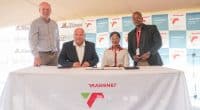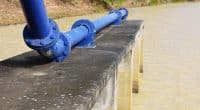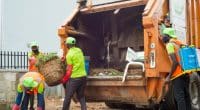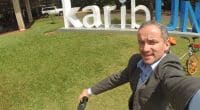The World Bank has just granted a $700 million loan to Nigeria. The International Development Association (IDA) loan will finance access to water, sanitation and hygiene (WASH) for 6 million people, mainly in rural areas and small towns.
The Federal Government of Nigeria has received a major boost in the implementation of its Sustainable Urban and Rural Water Supply, Sanitation and Hygiene (Surwash) Programme. The World Bank is providing US$700 million for the implementation of the programme through its subsidiary, the International Development Association (IDA).
With an estimated population of 201 million, the provision of clean water, sanitation and hygiene is a real challenge in Nigeria. And the country is lagging behind. According to the World Bank, about 60 million Nigerians live without access to basic drinking water services, 80 million without access to improved sanitation facilities and 167 million without access to a basic handwashing facility. In rural areas, 39% of households are without water services, while only half have access to improved sanitation facilities and almost a third (29%) still practice open defecation.
A PAN project
With the Surwash programme, the Nigerian government hopes to improve the situation and achieve the United Nations (UN) Development Goal 6 (SDG 6) of universal access to water and sanitation by 2030. Abuja has included Surwash in its National Action Plan (NAP), which includes revitalising the water supply, sanitation and hygiene (WASH) sector.
Read also- DRINKING WATER: these major African programmes that are changing the game locally
The World Bank funding includes $300 million for the development of water, sanitation and hygiene infrastructure. The Federal Government of Nigeria plans to build and rehabilitate water points and drinking water systems for rural communities and small towns; build and rehabilitate sanitation facilities; and build hand-washing stations. The Nigerian authorities are also planning to build small-scale faecal sludge disposal and/or treatment facilities.
At least 6 million people to benefit
According to the Federal Government of Nigeria, the infrastructural part of the Surwash programme will be implemented in the selected states by the National Project Implementation Unit (SPIU), in collaboration with local and community stakeholders. Abuja has a component on institutional development of the water and sanitation sector. The objective of this component is to strengthen the capacity of relevant federal, state and local government agencies and stakeholders to plan Wash programmes.
Read also- Urban sanitation, a major challenge for sustainable cities in Africa
According to the World Bank, the $700 million IDA credit will provide 6 million people with basic drinking water services and 1.4 million people with access to improved sanitation services. The programme will provide improved sanitation, water and hygiene (WASH) services to 2,000 schools and health facilities and help 500 communities reduce open defecation.
Jean Marie Takouleu







